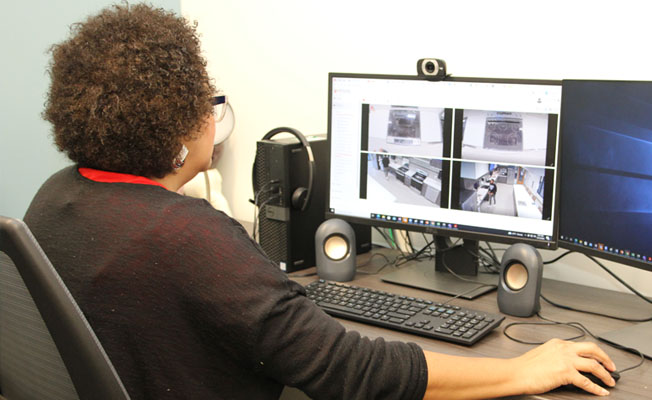
VALT
Embedded throughout the contemporary design is the state-of-the-art Video Audio Learning Tool (VALT) system, which leverages the power of video to improve education, training and research with enterprise-class streaming technology. VALT was designed to improve clinical skills training and the assessment process by integrating audio-video capture and observation technology.
Through an easy-to-use Web interface, activities can be live-streamed and/or recorded in any CELC room, including the kitchen. VALT was also installed in the newly renovated hospital room simulation lab and classroom 509 located on the lower level. The system can capture lectures, demonstrations and presentations that happen in these spaces, and the recorded sessions will form a digital resource video library. Educators are also able to observe in real-time what is happening in any room for small group activities. VALT’s technology can be used for student clinical experiential learning components so educators can review performance with students, allow students to reflect on their own performance, and for faculty to provide valuable feedback to enhance skills and professional reasoning.

